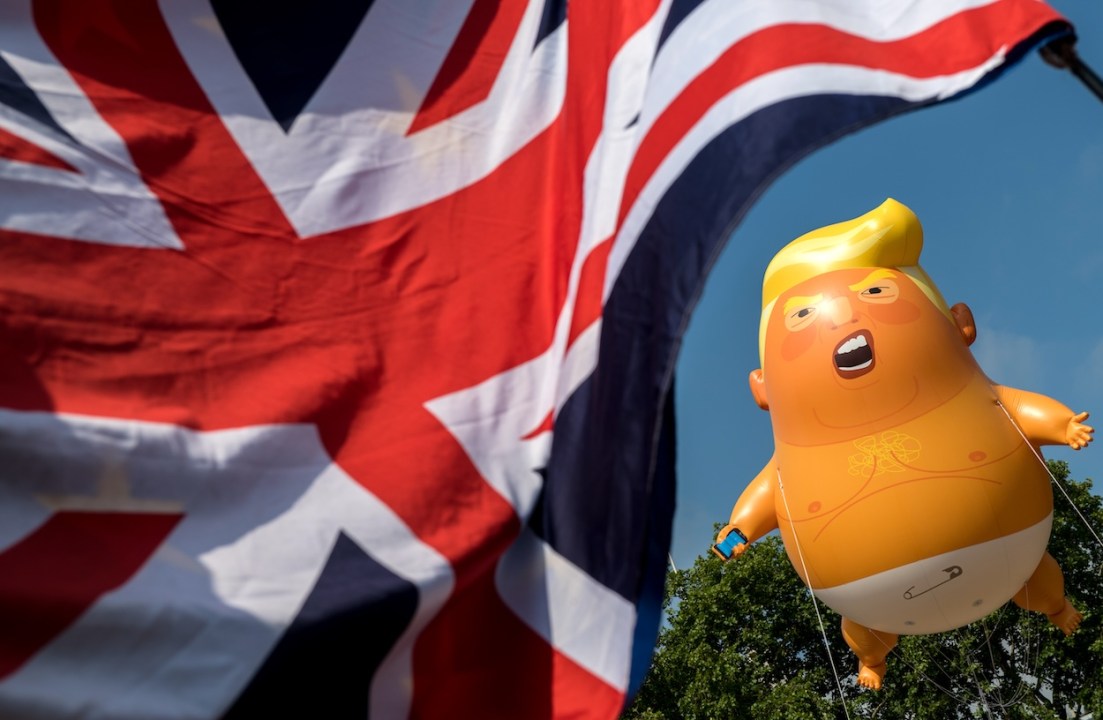The comments by Stephen Moore, Donald Trump’s economic adviser, should not really be controversial. ‘I’ve always said that Britain has to decide,’ he said from Florida, where he is preparing the new administration’s economic policy. ‘Do you want to go towards the European socialist model or do you want to go towards the US free market? Lately it seems like they [Britain] are shifting more in a European model and so if that’s the case I think we’d be less interested in a free trade deal.’
He is right. Britain absolutely does have to decide whether it wants to be closer to the US economic model or to carry on down the route of becoming just another brand of European social democracy. And never has the decision stared us so firmly in the face. The Trump administration is pretty clearly offering the UK a free trade deal at the same time the President Elect is threatening a general tariff of 10 to 20 per cent on most imports to the US – and much higher on those from China. Britain has been drifting ever since Brexit, but clearly, we are heading for crunch time.
Sadly, there is little doubt as to which choice our government is likely to make. The horror of doing any kind of deal with Trump will itself set Labour against the US. Moreover, Starmer has already put himself on a path of trying to cuddle up to the EU – though why he thinks he will get a better deal now than Boris Johnson was able to extract is hard to say. On top of that, just look at what Starmer’s government is doing in domestic policy: more employment law, heavier taxes on business, more regulation in most areas. Having made the brave decision to push itself out of Europe’s low orbit, Britain is slowly being sucked back.
But the situation is stark: that is a route to national impoverishment. At the time of the 2008–09 financial crisis, the richer, larger countries of western Europe were poorer than the US, but not dramatically so. They had enjoyed a spurt of growth. It was possible to look at the European model and say: well, even if we are on a slightly lower trajectory of growth, that is a reasonable trade-off against better public services. In 2008, according to World Bank figures, and calculated on a dollar basis, UK GDP per capita was 97.5 per cent of that of the US; in France it was 93.7 per cent, and Germany 93.9 per cent.
It is no longer possible to ignore the gap between US and European economic growth. By 2023, the UK’s GDP per capita was just 59.8 per cent of that of the US; in France, it was 54.4 per cent, and Germany 64.6 per cent. True, some of that difference is down to currency movements: the dollar was weak in 2008 and strong in 2023. If you measure the same economies on a purchasing power parity (PPP) basis, which corrects for living costs in different countries, UK GDP per capita in 2023 was still 72.1 per cent of what it was in the US; in France, it was 74.8 per cent, and Germany 84.8 per cent.
But however you want to look at it, it is inescapable that Europe – both the UK and EU – are slipping further and further behind. Since the pandemic, the gap has grown wider: since Q4 of 2019, the US economy has grown 11.4 per cent, France 4.1 per cent, the UK 3.0 per cent, and Germany 0.2 per cent. Whoever has been in power in the US, that country has been growing its economy consistently more strongly than Europe.
Shouldn’t that be the most important, indeed overriding, piece of evidence when it comes to answering Moore’s question: do we want to be more like the US or the EU? Unfortunately, I fear it will not even be considered. There are too many people in the government and indeed in positions of power outside it – like Andrew Bailey – who seem to think that the EU, with its high-regulation, high-welfare model, is the fount from which all wealth flows. Their delusion is condemning Britain to mediocrity.









Comments